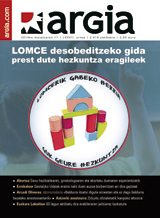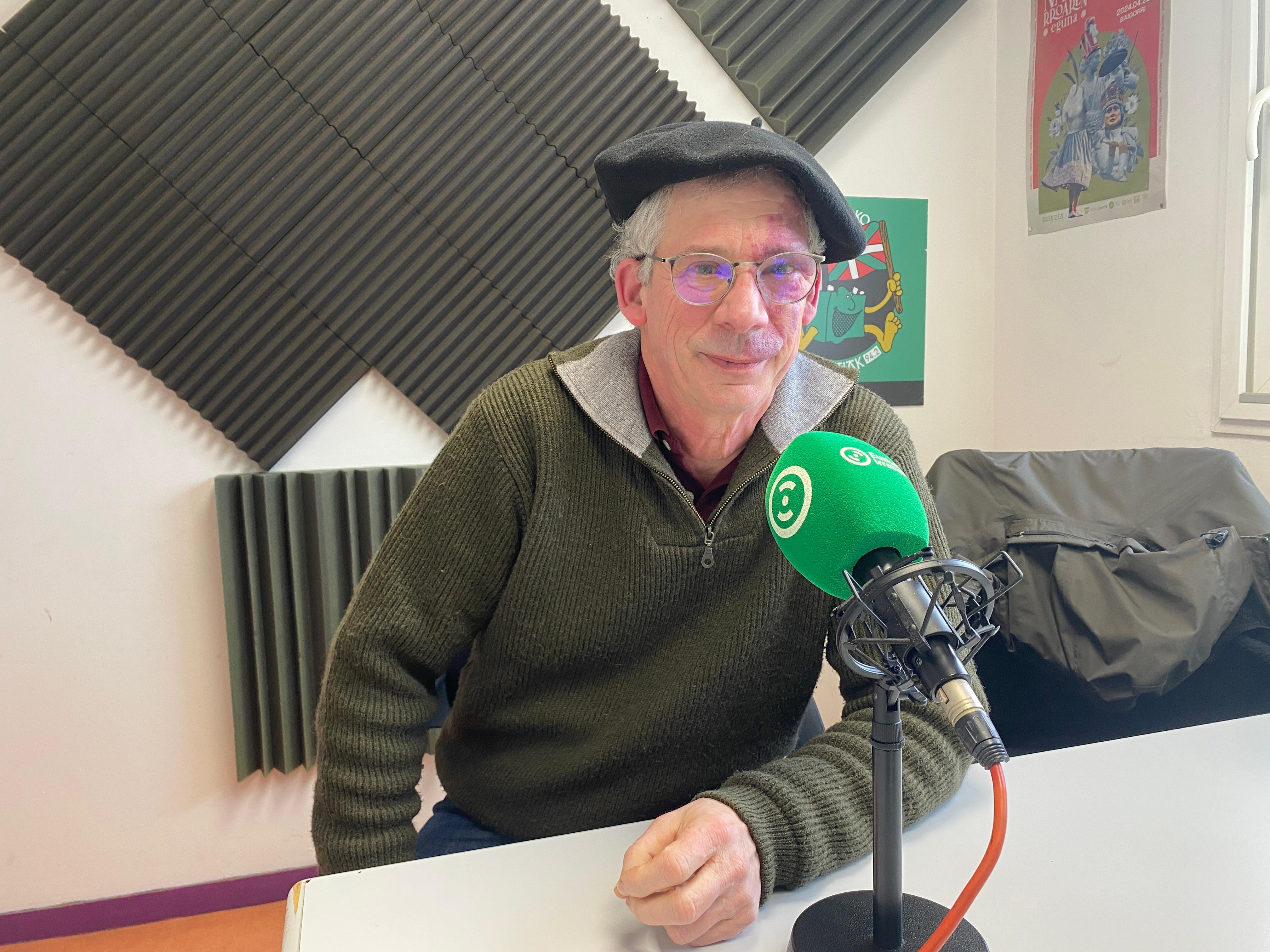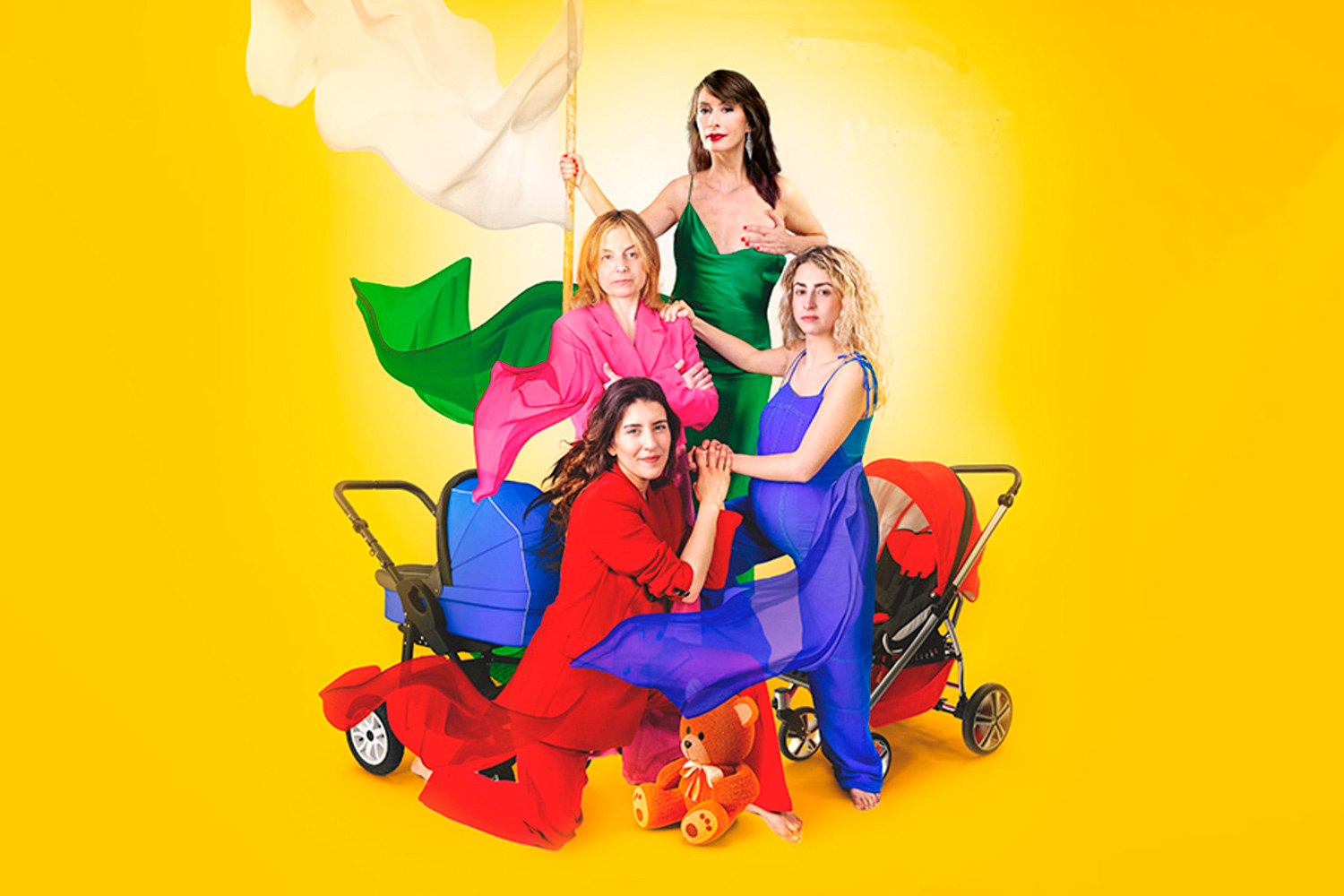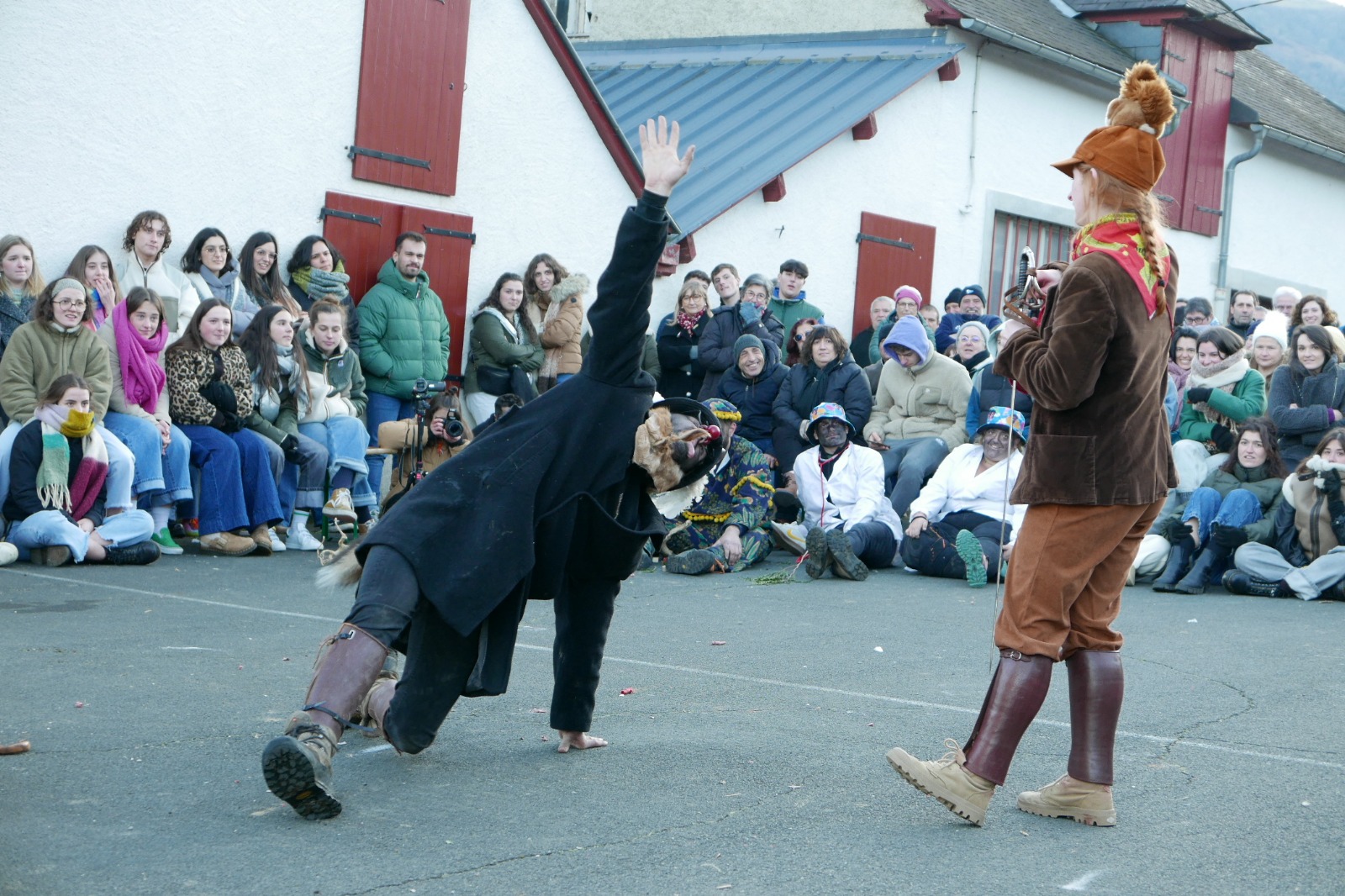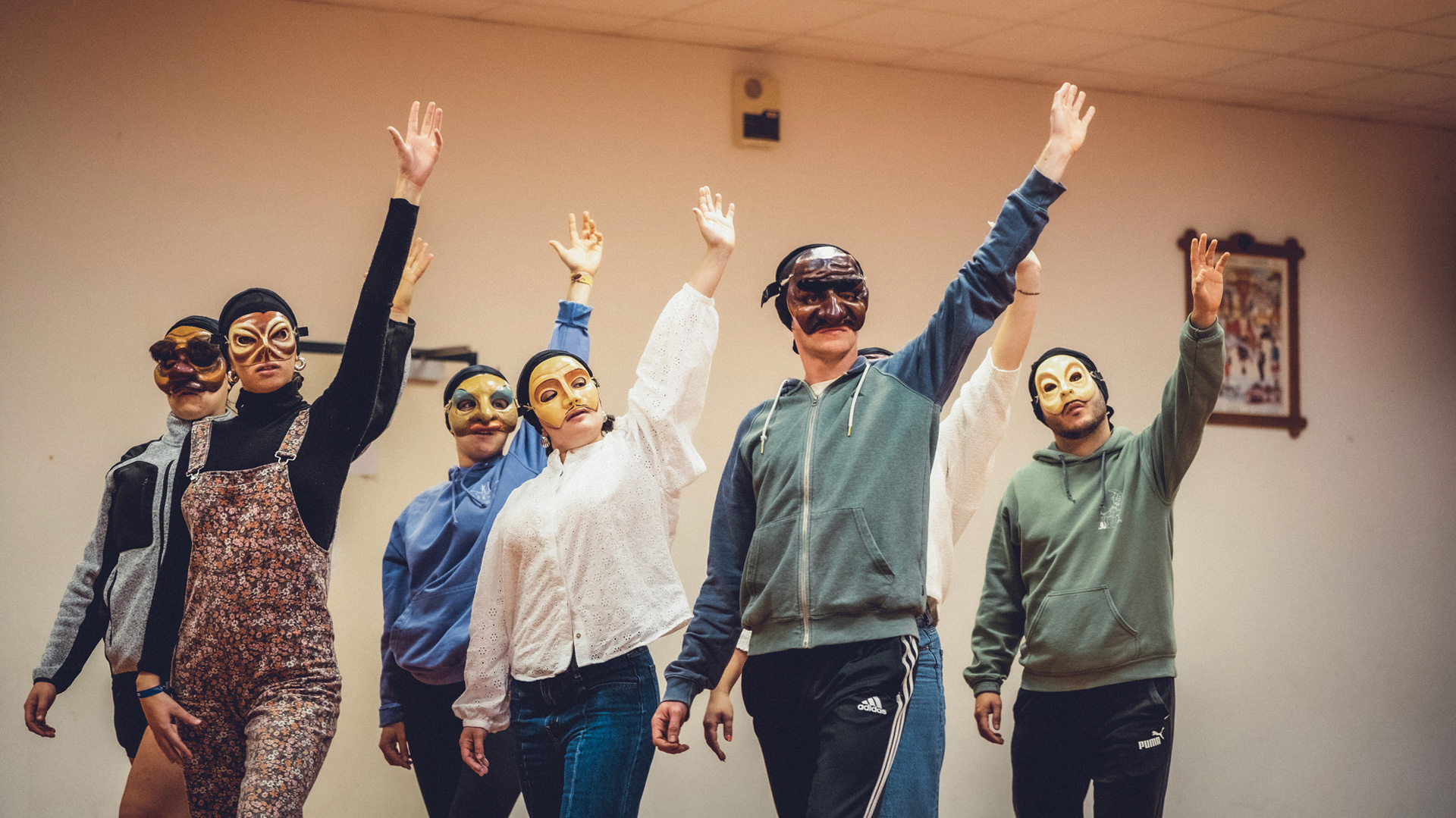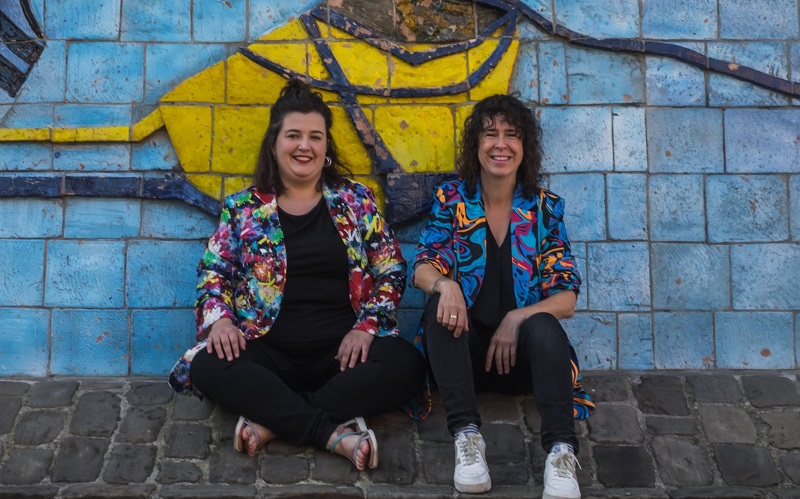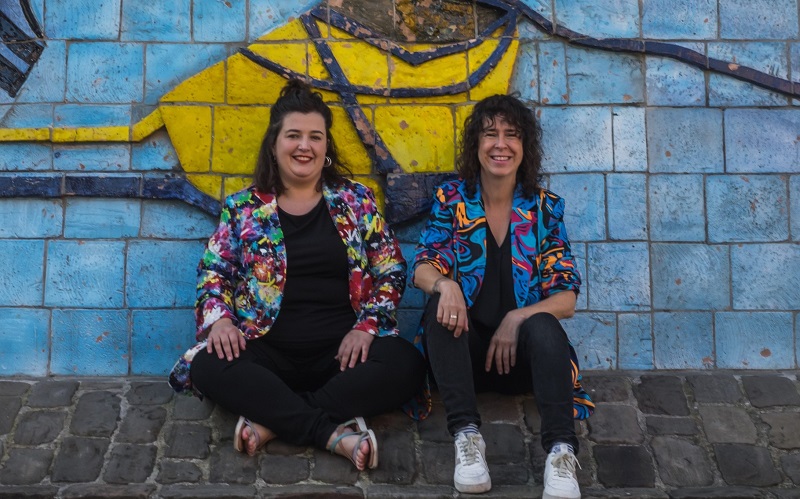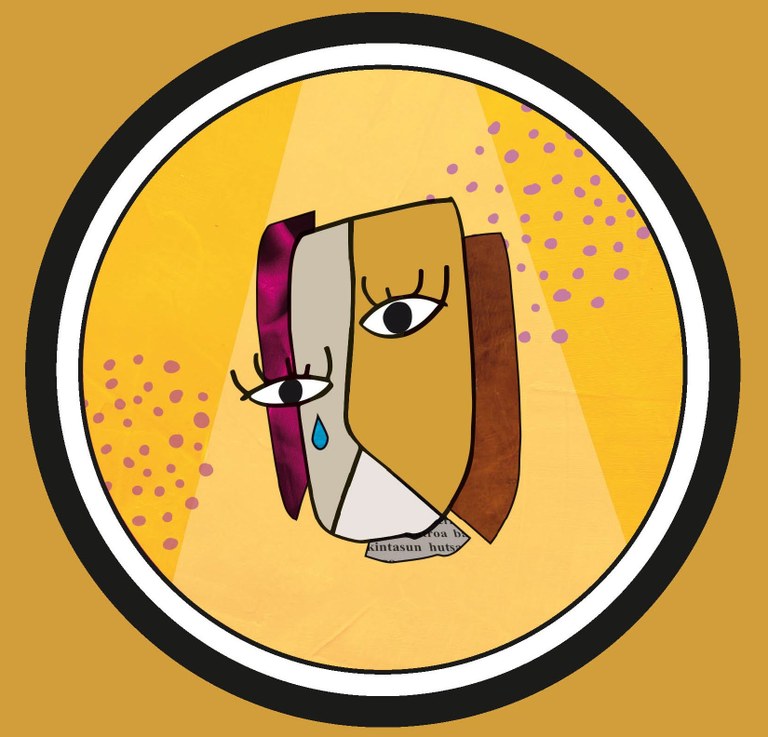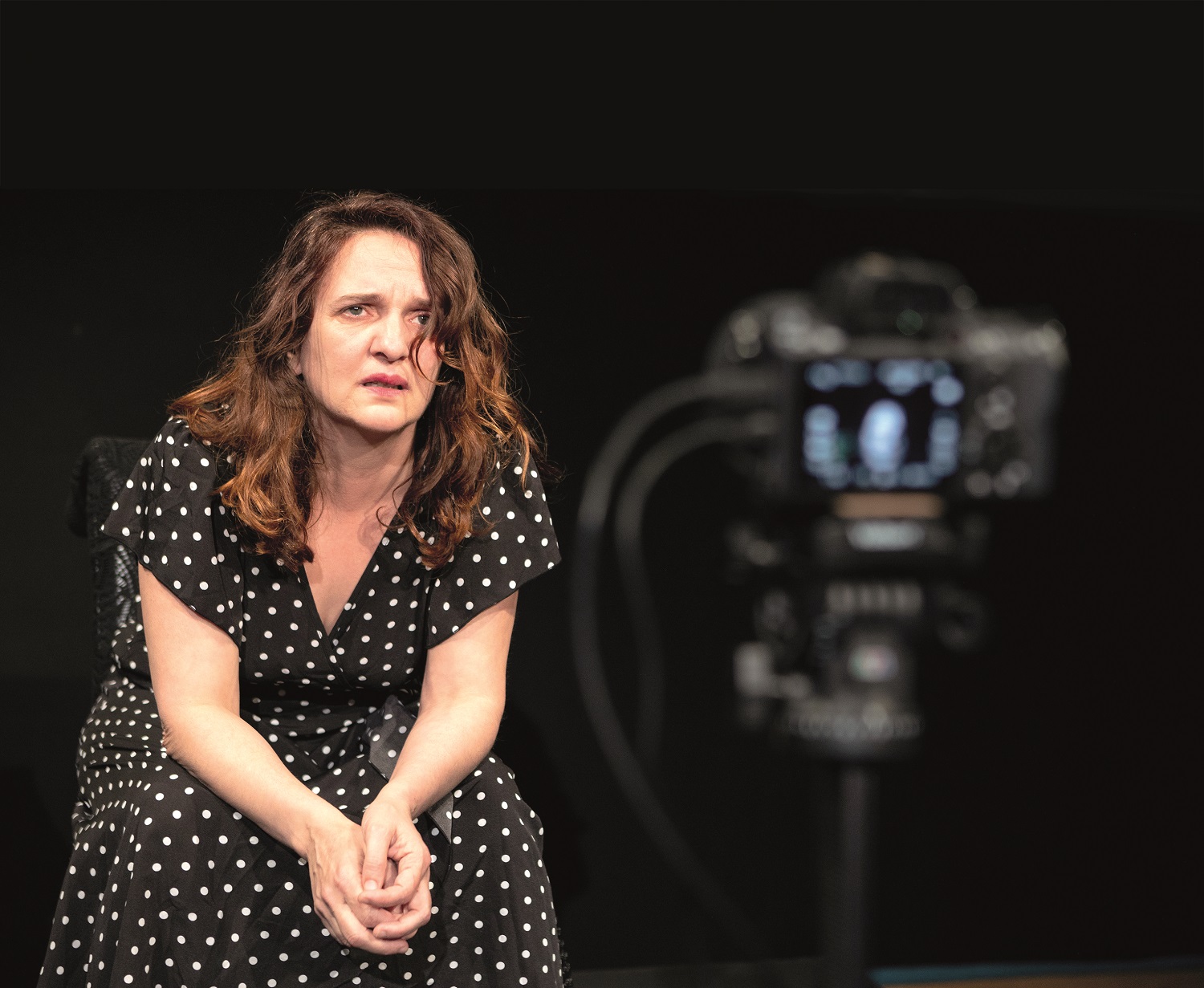As professional of militancy as ex officio
- When talking about amateur theater, the question arises immediately, what is an amateur? Anything other than professional? Theater groups that don't have a business structure or don't live from it? Although it is difficult to define, several theatre companies work in this field, but that has nothing to do with the lack of quality. Some are enthusiastic, others have had only the first contact. Although there is a lot of difference, in the background everyone agrees that they love the theater.
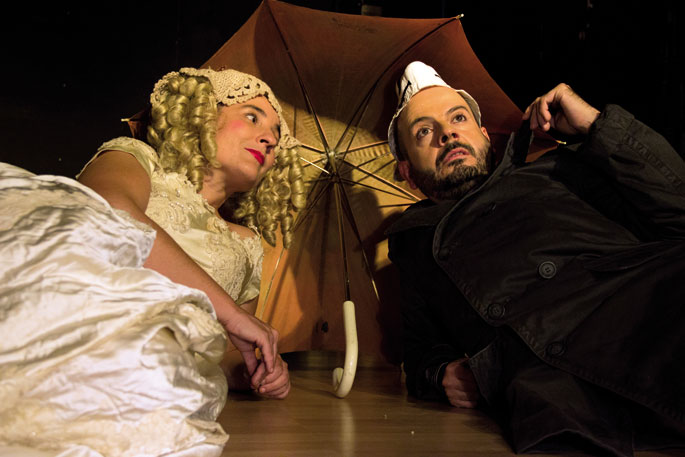
Ane Zabala, from the Gilkitxaro group, has been working in the theatre world for twenty years. When we addressed him, the question soon arrived: Is everything that is not professional amateur? Is the professional a company? Although Gilkitxaro is not a company, it is professional, but also amateur. “Getting lost on the labels is easy, it’s dangerous too,” says the actor.
Gilkespers started in 1993. “At that time we were part of the group a group of young people. The main goal was to do theater, always in Basque, to enjoy the theater, to play learning in the theater. Created to have fun in theatre, we might look like amateurs,” says Zabala. Over the years, Gilkespers’ career became entrenched as theatre and other arts studies were developed.
In 1998, the EATAE (Asociación de Teatro Amateur Euskal Talde) was created with the aim of “dealing with the deficiencies we saw among us”. But over the years, the association lost strength, “and there it is standing. We have not met for a long time. Meanwhile, EHAZE (Euskal Herriko Antzerkizaleen Elkartea) has been created and we are all there.” Despite having been in this world for twenty years, today another trade gives this actor the necessary economic support. Still, the Gilkitxaro team works professionally and is well received by the public.
Therefore, the actor says that the amateur has nothing to do with the lack of quality. “Behind that word can be groups of all kinds, popular theater, groups related to the center, groups that work in unofficial circuits, projects that can be considered professional without living from the theater, smaller projects that create the dramaturges that live from the performances... They can all be quality jobs. In addition, the amateur tag sometimes has a pejorative sense, and that is truly dangerous,” says Gilkitxaro, a member of the group.
It is difficult to distinguish between amateur theatre and professional theatre, often the tax number or business structure distinguish amateur theatre groups and professionals. “It is certainly difficult to put the groups behind a label. The answer can be found in the trajectory of the sector, when you start many teams and start participating in the sector, you may become a professional. And at the same time, the business world drowns the theater. Creativity and production are very different things. We are creators, not producers. I want to believe that in Euskal Herria there is also the pirate theater, creators navigating the world of performing arts, who on their own get into adventures and live the theater,” says this actor.
However, amateur status can subtract some elitism from the theater, somehow anybody can get into the theater. Amateur condition popularizes the theater. In the opinion of Ane Zabala, “the theater is for anyone, it is not an elitist art. The theater that is made in unofficial circuits is usually much more accessible to the pocket. The increase in VAT in Hego Euskal Herria has increased the entrance fees to theatres, but in fact it can be the same activity in official theatres or in a bar . For me, everything is theater, both for those who see it and for those who do it. Everyone has the goal of telling a story, and that’s the important thing.”
Approaching the public
From Bizkaia to Gipuzkoa we found the theatre company Ion Martínez and Saioa Royo, with which they collaborate in the staging of Aid for Change. Powered by the theater, in 2002 Ion Martínez Txiki started doing monologues in bars and small halls, and in 2008 created the theater company Help Change with a monologue about Jorge Oteiza.
In 2011, he wrote, directed and starred along with Saioa Royo the play Ispilua, with which they have performed over 50 functions, one of the largest in the amateur theatre scene. Taking advantage of the success of the mirror and the good reception of the audience, they have just premiered a new play, Amets Zirkoa For sale, which has a lot of clown. “We wanted to transfer to the circus the situation we live in today. After all, the circus is always in crisis, because we have to work under harsh conditions. We wanted to reflect with absurd humor the precarious working conditions, with a dramatic end, as in the dramas seen every day on the street. I don’t like the comfortable theater,” explains Martínez.
The theater group of Help to Change is part of the platform of creators Taupaka, “they help us to work in dignified conditions,” Martínez reasoned, as the company of Help to Change has no business structure and through Taupaka “when it is necessary to do the legal contract, we work with the tax number of Taupak”. The members of Aldaketa Laguntza do not consider it professional, as “we work in other professions. However, I can say that we do decent work.”
The Help to Change team takes advantage of other circuits. Thus, the theater moves to the street, to the bars, to the gaztetxes or to where there is a public. “We have no place in the big theaters, because that requires another great production, but also in the amateur theatre, the works that are performed in many cases are very appropriate, can be programmed without fear in these theatres. If you don't have a name, it's hard to work on official circuits. In any case, our challenge is to walk through Euskal Herria and show that our contribution
is there”. In Vitoria-Gasteiz we found the friends of the theater company Kuku Bazar. Kuku Bazar was formed in 1998, after a theatre course. “We made a good team and some of our colleagues decided to stay in the theater,” explains Marta López. Txubio Fernández de Jauregi (member of the Monstrenko Collective) and Plum Marchand were in charge of taking their first steps in the world of theatre, and after a couple of years of accompaniment, Kuku Bazar was the only group that started its journey.
“From the beginning the work has been based on collective creation. They've been of all kinds, both room and street. Clown, physical theatre, storytelling, poetry and performance have been of great importance,” explains López. Since 2013, Kuku Bazar’s members have been immersed in the Eolo theatre play. “The movement, images, poetry and accounts of our ancestors are of great importance in this work.” As López explained to us, “a topic as hard as war is dedramatized, from a feminine point of view. Our most obvious feature is that we do a work of collective creation.” They work in the space provided by the City Hall of Vitoria.
The Kuku Bazar theatre group is a cultural association. “At first the situation was comfortable, but doubts gradually arose. In the end, the tax situation determines whether you're an amateur or not. It has the advantage that it is a very simple formula to keep doing theater. The biggest disadvantage is that it completely limits you when entering the networks,” López stressed.
“In our group there are people who work in the theater. In the Kuku Bazar group, several works work, but they also participate in other assemblies. We can therefore say that we are not amateurs, even though the tax situation indicates this. In the work process is the same as an amateur as a professional. We feel the responsibility to make high-quality theater. The difference is on sale, so you notice that we are on the amateur network.”
Iparralde Live Theatre
In Ipar Euskal Herria, the amateur has a special meaning. Often closely linked to tradition, but at the same time, they are highly prestigious amateur theatre groups such as Amikazank de Amikuze, founded by Mattin Irigoien, or the Hiru Punttu group, created by Antton Lukuk and missing today.
The Iduzkilore group, led by Ander Lipus, repeats in Larrartean. She is working on the Lady of Hazparne written by Telesforo Monzón, which will be premiered in October. “At Iparralde, amateur theater had a lot of strength in one time, I think now not so much, but it’s done a lot,” explains Lipus. Pierres Lartzabal, Telesforo Monzon and Daniel Landart have been in charge of staging the works of the theatre authors. “There is a repertoire,” says Lipus.
“Shepherds and masks are totally amateur, it’s a theater that makes people who are born of a ritual but are not actors,” Lipus continues. “The North is the heart of the theater. In our group there is an 80-year-old and a 20-year-old. There is a great hobby of theater.”
The Iduzkilore group emerged in 2010, driven by the Lapurdi 1609 association of Senpere, according to Bernadette Lur. Twelve amateurs, Gipuzkoans, Bajonavarras and labortans gathered, but residents of the region, and the work that gave name to the series was recreated (what happened in Lapurdi in 1609). The classic work Hazparneko Anderea, by Telesforo Monzón, begins to work in a second work. Bernadette Lur does not doubt that “we are an amateur group. One of the main objectives of our group is to be an actor in the transmission of Euskera. Working for our pleasure, working the theater, proposing to the public cultural characteristics that make our historical heritage known throughout the Basque Country”.
In the village for the people
The theater company Abarka by Markina-Xemein Biba Zorrixen Izurritie! She's performing, Idazlea zeu zara by Joseba Sarrionandia, because you're reading a theater play inspired by the story series, and she's received very good reviews. “We’ve had more applause than we expected,” says Luis Egurrola. “It has been a pleasure to go from village to village and we have gone to more peoples than ever
to represent.” But the Abarka theatre group works mostly in Markina-Xemein: from here to there. “In it we premiered all the long works and participated in many initiatives of the people: In our hand in the mobile flash, doing a small performance in the senior residence during Christmas, in the town festivities, in the association of people with intellectual disabilities…”explains the member of Abarka.
Most of the long works are performed under the direction of Ander Lipus, who is also part of the group.
The Karrika theatre group in Durango was formed about fifteen years ago. At present there are three assemblies in progress: Drawing Stars, Roots Inungane in the Air.
Around twenty actors participate in the play Lurra Astinduz, a traditional professional theatre play in which it is difficult to see so many actors on the stage. “The amateur does not depend on the market and has no bondage for money. We have so much freedom to get into these kinds of projects. In recent years, this type of productions are few in the practice of traditional theater, for the benefit of other needs, but it is true that the amateurs are a multitudinous theater group that has remained in our hands the possibility of performing this type of plays. Professional theatre has been dedicated to lowering costs. However, it is not easy to organize or run such a large group, but we have a dynamic of years in our favor.”
The street is based in the theater of Durango, and in addition to its shows, training courses are also organized. “We are activists of the performing arts,” says the director.
“Sometimes you see actors who play very well on stage, in amateur theater. On the contrary, they also see professionals with little play of representation,” said Lipus. “I’ve always felt this trade, I don’t know if that’s professional. All the hours of my life are dedicated to theater, and there's the problem, what do you dedicate your time to and what is your trade."
Noiz eta nola sortu zen Kitzikazank, zuk zuzentzen duzun antzerki taldea?
2005ean bildu ginen, hiruzpalau gaztek aireratu emeia baten haritik. Inguruko gazte batzuk gomitatzea erran nien eta horrela hasi ginen biltzen. Ondoko urteetan gela-antzerkirako bi lan sortu genituen. Lehena Gaztetasunak erabiltzen nau, aski klasikoa forman. Bigarrena Loreak mendian, hondarkinak lurpean eta bideak gainean, publikoaren erdian ematen zen, bertsolariek komentaturik artetik. Bi esperientzia horiekin ibili ginen han-hemenka, memento gozoak biziz publikoarekin, berdin antolatzaileekin edo taldean bertan.
2009an, aldiz, Libertimendua antolatzea deliberatu genuen, eta geroztik urtez urte muntatu dugu, azken otsailekoa seigarrena dugularik jada. Erran nahi du, emanaldi bakar bat dela ihauteriz, Donapaleun, eta bertan biltzen direnekin. Donibane Garazin berpiztua zuten moldea, eta egia erran, arras gustukoa nuen molde hori, maizegi, gure zangotraba guziekin eredua desitxuratzen lagundu badut ere, baina oro har gure egoera, gure ahalak eta ematen dituen potentzialtasuna ikusiz, gaur egun egin dezakegun gauza interesgarriena dirudi.
Antzerkizaletasunak bultzatuta?
Antzerkizaletasuna bada beti. Antzerkiak, bertsoak, dantzak moldeak ematen ditu, eta hor norberak bere jaiduren arabera berea aurki eta berez sortu dezake. Gure historia laburrean, Amikuze aldeko 35 bat gaztek parte hartu dute behin edo gehiagotan esperientzia honetan. Gaurko gure erronka gutienez bi sailetan ikusten dut. Libertimenduaren ereduan barneratzea daiteke lehena. Bertso eskola sortzen ari da eremuan, beharrezkoa da. Dantzarien ala zirtzilen karguaren partetik, badugu nahiko bide egiteko ere. Bigarrena, taldearen zuzendaritza partekatzean datza, edo transmisioa dei daiteke ere, edo kolektiboki pentsatzea nola transmititu sortzeko grina, nahi baduzu. Azkenik gela-antzerkia egitea beti da aukera, baina bi gauza beharko ditu: multzo bat lan horretan sartzeko prest izatea batetik, eta “zerbait erraiteko” delako txinparta hori bestetik, agertu puntutik ekintza burutu arte ezin baizara bakean bizi.
Antzerki amateurrak tradizio handia du Ipar Euskal Herrian, zergatik?
Tradizioa bada, baina horren gibelean diren asmoak ez dira denak zaku berean ezartzen ahal. Elizak, jendarte euskalduna baliatu zuen aro modernoak ekartzen zituen molde “lizunetaz” babesteko, eliz “harresia” eraikitzeko, gaur berriz modan jarri den hitz bat baliatzearren, eta “patronnage” antzerkia anitz garatua izan da joan den mendean, gazte belaunaldien gainean erabateko kontrola atxikitzeko. Denbora berean hezkuntza bat izan da, eta dena ez baitoa beti berak uste duen bidetik, hau edo horren onura azpimarra daiteke, baina funtsean asmoa hori zen. Geroztik mundu abertzaleak ere tentazio berdina du bere eskuko kultur jarduna desiratuz. Gaurko apezak ere badira, milaka aurpegi izan dezazketenak borreroen gisa. Baina jendarteari edo gure buruei zor diogun antzerkia, harresiak eraikitzeko baino, hausteko da.
Bestalde, gaurko testuingurua diglosia bortitza da. Menpekotasun kulturala hain handia da, non ia ez den ikusten ere, normalizatua delakotz. Ikustekoa da nola, antzerki errepika geletan, bizitzako gai askori buruzko izpiritu kritikoaren xorroxten pasatzen ditugun orenak. Euskal artedrama bultzatu nahi baduzu, hautu zorrotzak egitea dagokizu, egunerokoan egiten ez dituzunak agian, euskara hutsez pentsatu, eraiki eta plazaratzea minimoa dela dakusazu. Hortik begirada aski dekalatua “normari” buruz, eta ene gustuko Libertimenduak horrela du bere leku osoa biltzen, gaurko egoera eta desafioei erantzun egokia ekartzeko gai izan baitaiteke.
Herri antzerki gisa uler daiteke antzerki amateurra? Antzerkiak duen kutsu elitista deuseztatzen du? Herritik herrirako egiten den antzerkia da? Herria aktibatzen du?
Diskurtso tranpatsua gureganatua dugu. Kulturaren inguruko diskurtso guzia kanpotik begiratzen gaituzten, diglosia egoeran mantentzen, minorizatuak gaituztenena da. Haien bikote antinomikoen arabera begiratzen diogu gureari: amateur vs profesional, herri (ulertu popular edo probintzia) vs kultu edo elitista (ulertu moderno, hiritar, unibertsal), euskara huts (ulertu erradikal) vs elebi (ulertu frantsesez pentsatua).
Politena tradizio vs sorkuntza iduritzen zait. Ironiaz hartu daiteke, baina gauden egoeran zinikoa da. Adibideak ditugu nahinon. Azken denboretan, dantza mundua borroka faltsu horretan dabila ihaloska, eta jendea pilaka biltzen da ikusgarri horietara. Balore positiboak daude, eta ondorioz negatiboak. Gaurko kultur emaitza prisma horietarik ebalua ezazu, eta honek derrigor frantsesezko euskal kultura batera zaramatza, edo modako efektu baten gainean finkatu euskal ergelkeria batera.
Gurea besteen begiz ikusten dugu, eta nolaz ez, garrantzitsua zena gurean, gutiesten dugu: transmisioa, hizkuntza, komunitatea, plaza hartzea (res publica), karguak eta begirada kritikoa...
Honetan barnatzeko, gaur agertu berri, tresna bat badugu, Antton Lukuren Libertitzeaz saiakera. Bera, gako zonbait argitzera saiatu da. Hortik abiatuz, “gure” begirada landu ahal genezake, eta izan daiteke debate eta bilaketa barnatzeko hari asko. Debatea edo konfliktoa ezabatzera usatua den jendarte batentzat bide hau nekea da, baina gure artedramaren harra barnean dugunek hortik jarraitzea merezi duela uste dut.
Vagina Shadow(iko)
Group: The Mud Flowers.
The actors: Araitz Katarain, Janire Arrizabalaga and Izaro Bilbao.
Directed by: by Iraitz Lizarraga.
When: February 2nd.
In which: In the Usurbil Fire Room.
Duela hemeretzi urte berpiztu zen libertimenduen usadioa Donibane Garazin. Antton Lukuk abiatu zuen mugimendu hori, eta bi hamarkadetan, Ipar Euskal Herriko herri desberdinetara ez ezik, Hegoaldera ere hedatu da.
Arizona
Actors: Justin Garfield and Jon Plazaola...
WHEN: January 26th.
IN WHICH: The New Culture Center. In the square.
-------------------------------------------
The couple Margaret (Aitziber Garmendia) and George (Jon Plazaola) leave Idaho to guard the border between... [+]
AMAK
Company: Txalo teatroa.
Created by:Elena Díaz.
Address: Begoña Bilbao.
Actors: Finally, Ibon Gaztañazpi will account for the details of Intza Alkain, Tania Fornieles, Oihana Maritorena and IRAITZ Lizarraga.
When: 10 January.
Where: Auditorio Itsas Etxea... [+]
Basabürüako ibar eskuineko gazteek lehen maskarada arrakastatsua eman dute igandean, Lakarrin.
By:
Mirari Martiarena and Idoia Torrealdai.
When: 6 December.
Where: In the San Agustín cultural center of Durango.
------------------------------------------------------
The fourth wall breaks and interferes directly, standing and fearless. ZtandaP is a way of counting... [+]
By:
Mirari Martiarena and Idoia Torrealdai.
When: 6 December.
Where: In the San Agustín cultural center of Durango.
-------------------------------------------------
The fourth wall breaks and interferes directly, standing and fearless. ZtandaP is a way of counting from... [+]
We're in chaos. That has been said to us by the French media, which Parliament has brought down the government on 4 December. The fear that political, institutional, social, economic chaos will rage us all in the horde of hell comes to our veins. What comedy we're going to play... [+]
Fight and metamorphosis of a woman
By: Eneko Sagardoy and Vito Rogado.
WHEN: 1 December.
WHERE: Serantes Room of Santurtzi.
-----------------------------------------------------------
Immediately after proposing the plan, the person who decided to buy the tickets online... [+]









